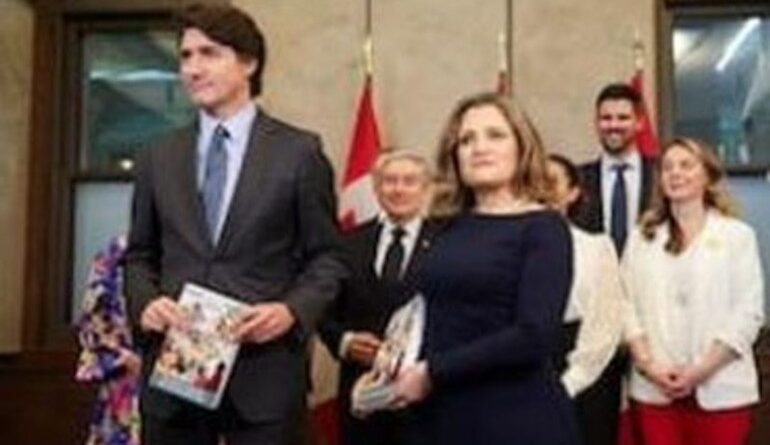Trudeau government faces crisis as deputy PM Freeland resigns ahead of elections

Ottawa: Canada’s Deputy Prime Minister and Finance Minister Chrystia Freeland announced her resignation yesterday, triggering political uncertainty for Prime Minister Justin Trudeau’s government just 10 months before the general elections.
Freeland, a close aide to Trudeau, resigned abruptly ahead of her scheduled financial briefing in the House of Commons, leading to widespread speculation about the government’s future.
Public Safety Minister Dominic LeBlanc was sworn in as the new finance minister, but the move has done little to quell discussions surrounding the resignation or the Trudeau government’s stability.
Reports indicate growing tensions between Freeland and Trudeau over the government’s financial strategy. A significant point of contention appears to be the exclusion of a 250-rupee fund promise from the latest financial plans, presented amid a budget deficit that has ballooned to $62 billion.
The minority government reportedly struggled to garner parliamentary support to pass the proposed finance bill.
Adding to the challenges, Canada’s recent unplanned expenditures—such as over $1 billion allocated for border security enhancements—followed remarks by US President-elect Donald Trump regarding tariffs and border measures.
A recent survey found that 77 percent of Canadians favor immediate elections, with growing discontent towards Trudeau’s leadership.
The poll revealed Trudeau’s approval rating dropped to 21 percent in September, while opposition Conservative leader Pierre Poilievre’s popularity surged to 77 percent, further intensifying pressure on the embattled prime minister.
Political analysts suggest the resignation could pave the way for mid-term elections, leaving the future of Trudeau’s government increasingly uncertain.

